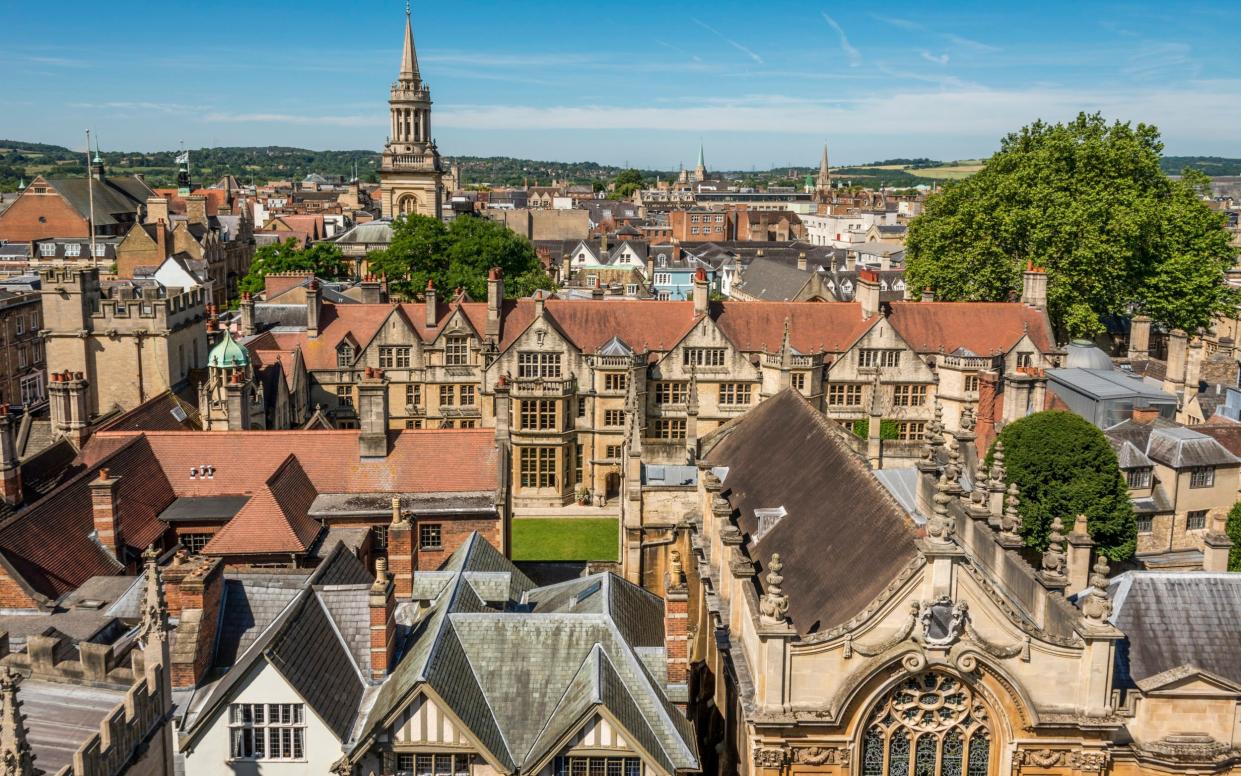Private school applications to Oxford at 20-year low amid state surge

Private school applications to the University of Oxford have fallen to the lowest level in decades amid a surge in competition from state schools.
The number of private school pupils applying to the world-leading university fell by 6 per cent to 3,855 for the current academic year – the lowest number since 2001.
Meanwhile, applications from state school pupils in 2022 hit a record high of 9,965, up 4 per cent on the previous year, according to admissions statistics released by the university on Wednesday.
Since 2010, state school applications to Oxford have risen by almost 29 per cent, while private school applications have fallen by 26 per cent.
Leading private schools have started to encourage their pupils to apply to top US universities amid a rise in competition for Oxford and Cambridge, which have invested in outreach programmes and developed admissions policies designed to identify more pupils with potential from poorer backgrounds.
Since 2017, the success rate for private schools securing an offer from Oxford has fallen from around 29 per cent to 20 per cent.
Private school pupils admitted in 2022 accounted for 31.9 per cent of UK undergraduates, up marginally from 31.8 per cent in the previous year but down from 41.8 per cent in 2017.
Oxford and Cambridge have developed their own admissions systems that consider the school and social background of applicants to try to put their achievements in context and identify the potential of disadvantaged pupils. Some parents and academics have warned that such admissions policies could amount to “social engineering”, which the universities strongly refute.
‘Brain drain’ warning
Private school leaders have warned that the system could encourage a “brain drain” to the US.
Top private schools such as Eton College have dedicated US university advisers to help around one in 10 school leavers who applies to US institutions.
In a foreword to the latest admissions report, Prof Irene Tracey, vice-chancellor of Oxford, said: “It is encouraging to see that steady progress continues to be made to ensure that those with the highest academic potential, from all backgrounds, can realise their aspirations to study here – despite admissions continuing to be increasingly competitive.”
She told The Telegraph when she was admitted as vice-chancellor at the start of the year that private school pupils would not be restricted from getting places at Oxford.
She said she was against “having a particular target of quotas” for different groups.
The offer rate for private school pupils varies across different Oxford colleges.
Worcester College has seen its offer rate for independent school pupils halve since 2017, declining from around 18 per cent to 8 per cent. Five colleges have seen it decline by at least a third, including Keble, St Hilda’s, St Anne’s, Exeter and Magdalen.
Private school offer rates are still higher for 19 of 29 colleges at the university, but this is down from 24 in 2017. University College was the only college to see private school offers overtake state school offers over the period, as they rose from 26.2 per cent to 28.7 per cent.
A spokesman for the Independent Schools Council said: “While Oxford applications have declined over the past few years, we have seen a rise in the number of independent school students applying to Cambridge. There will also be other factors at play here, including small but increasing numbers of students opting to study abroad.
They added: “Using school type as a determiner of advantage is a blunt instrument.”
A spokesman for Oxford University said: “In 2022, almost 24,000 applications for undergraduate study were made, and we welcomed more than 3,000 students who successfully demonstrated their academic potential through one of the most competitive application processes in the world.
“Over the past five years, students from a wider range of backgrounds than ever have joined the University, including from areas of low progression to higher education and from areas of social and economic disadvantage.”
The university insisted that “everyone at Oxford is chosen based on academic potential and ability alone”.

 Yahoo News
Yahoo News 
